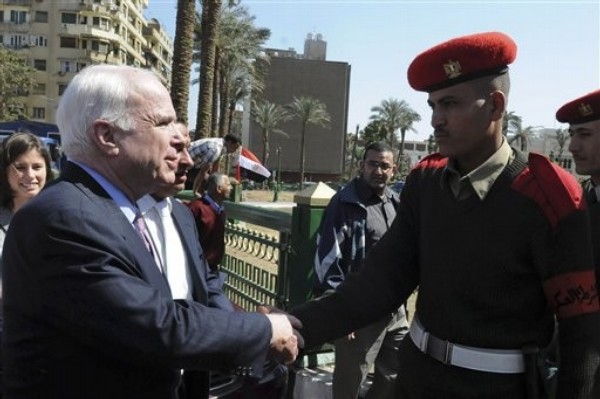Can America shape the Middle East?

With the Middle East in flux, many commentators have started arguing that now is a propitious moment to begin remaking the region so that it conforms to Western universal values. The latest entry in the genre is Kenneth Pollack:
But how the Egyptian revolution defines the new Middle East is still an open question. A great many people will try to use it to impose their visions. It is a moment when the United States can and must enter the fray. It is vital that we take the lead in helping shape how Middle Easterners see the Egyptian revolution.It is also an opportunity for the United States to overcome our past mistakes, to recognize the real grievances of the people of the region and to reexamine their conflicts and our role in them. The Egyptian revolution and the regional unrest that followed have made it abundantly clear that the vast majority of Muslim Middle Easterners want to live in modernizing, democratizing, developing nations. They want prosperity, they want pluralism and they want the better lives that we in the West enjoy.
The struggle in the new Middle East must be defined as one between nations that are moving in the right direction and nations that are not; between those that are embracing economic liberalization, educational reform, democracy, the rule of law and civil liberties, and those that are not. Viewed through this prism, the new Egypt, the new Iraq and the new Palestinian Authority are clearly in one camp. Iran and Syria â?? the region's two most authoritarian regimes and America's two greatest remaining adversaries there â?? are in the other.
It's interesting, when you think about it. The Mideast has long vexed the United States. We have been unable, and generally unwilling, to moderate its corrupt rulers, to solve its intractable conflicts and have been drawn into a "policing" role that has seen us wage wars and station military forces in the region - and with serious global consequences.
This current wave of unrest is an occasion to pause and reflect on U.S. policy and it has generally elicited two kinds of reactions. The first is Pollack's, and it's basically an argument for the status quo - but better! We'll keep meddling and interfering, but this time, we'll back the right player. The past failures can be swept away and the region can be made anew, just as Eastern Europe was brought into the fold following the collapse of the Soviet Union. This narrative, I suspect, is almost certainly going to the be one adopted by the Obama administration, as it continues to put the U.S. in the middle of the region's affairs and accords with the Iranian containment strategy the administration has put in place.
The second reaction, and one I'm obviously more sympathetic too, is Peter Beinert's argument that now is a good time to "get out" - that 400 million people aren't clay to be "shaped," and that those who can confidently declare what the "vast majority" of the Muslim Middle East desires don't really know anything of the sort.
(AP Photo)



